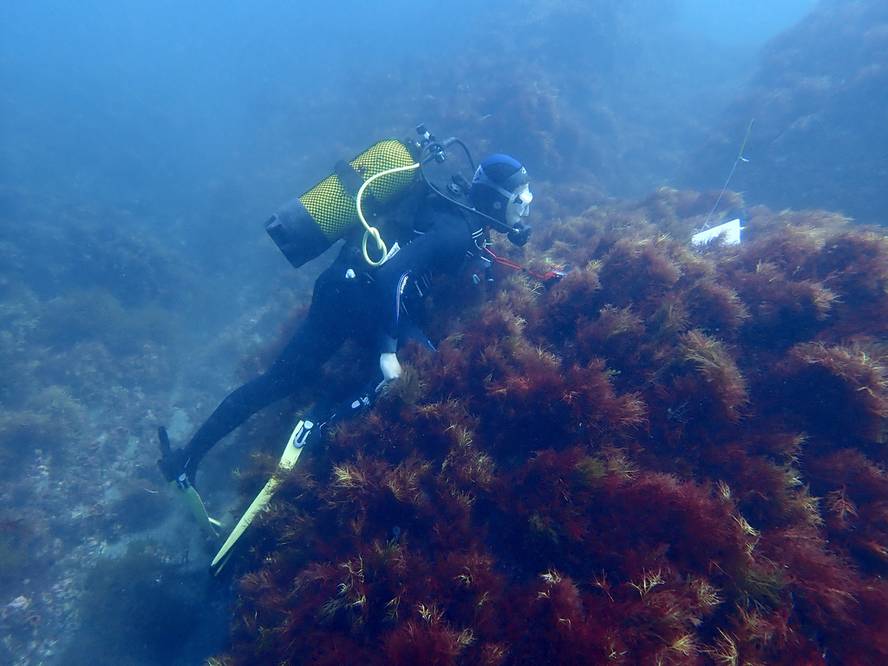As the Biscayan coast warms up, the macroalgae community is degrading

A research group from the UPV/EHU has analyzed the influence of rising sea surface temperature on macroalgae communities over the past four decades. Different depths have been investigated in an area on the Biscayan coast and it has been observed that the preferred species of cold water are becoming increasingly scarce and, in turn, hot-water amateurs are increasing. Consequently, there are several ecological functions at stake.
The study was published in the journal Marine Environmental Research. As they have explained, 90% of the excess heat generated in the atmosphere in recent years has been absorbed by the sea, so the surface temperature of the oceans has increased considerably and, in addition, warming is more visible in some places than in others: worldwide it has increased 0.15 °C per decade, but on the Basque coast it has increased 0.23 °C. In view of this situation, the Marine Marine Research Group of the UPV/EHU, together with the Centre for Advanced Studies of Blanes, has analysed the influence of warming over the last 40 years on the macroalgae communities of a coastal area of Bizkaia.
Thus, in addition to stating that some species are being replaced by others, it is evident that this has caused changes in the structure of the communities. In fact, the most diminished species, like Gelidium corneum, are structural. That is, they create three-dimensional environments that serve as a refuge for various organisms. As structural species decline, no other species representing these important ecological functions have been detected. In fact, the hot water species that have increased are smaller and morphologically simpler. This is a degradation of communities.
Given this situation, researchers propose to continue the study and increase the frequency of monitoring to better understand the behavior of macroalgal communities and take proactive measures to protect the habitats of vulnerable species. One of them may be the identification of areas with potential climate refuge. Efforts are therefore being made to find solutions before the situation becomes irreversible.





